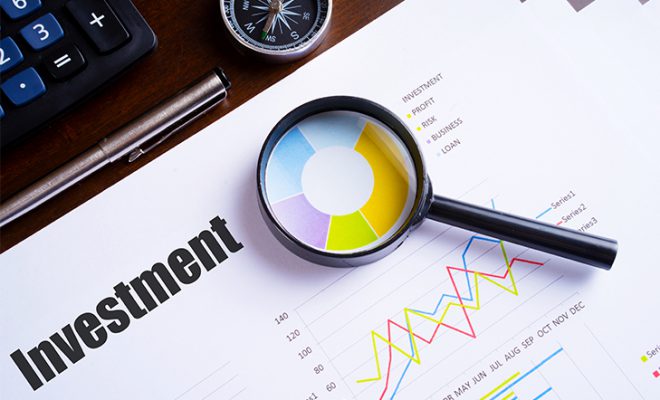How to Improve Your Investment Portfolio
2020 has been a turbulent year. The coronavirus pandemic has caused both a health and an economic crisis across the world, including the U.S. The economic impact of the novel coronavirus is unprecedented in its scale and the entire financial world is recovering from the shock. Many stocks have plummeted in value, investment portfolios have lost money, millions have lost their jobs, and people have consumed more of their retirement savings than expected. However, with the news of the vaccine hitting the markets, there is a strong hope for an economic recovery.
To improve your investment portfolio performance in 2021, here are some effective measures below:
Re-evaluate your portfolio
2020 has been a volatile year, especially for market investors. In many cases, it was found that investment portfolios comprised of stock holdings higher than the risk appetite of the investor may have lost a lot in their portfolio values. However, to overcome these losses and ensure your portfolio performs well in 2021, you should consider rebalancing your portfolio. The first step is to know how much money is invested in your taxable and non-taxable accounts, including the retirement savings plans. In case you are married, add the balances of your spouse’s accounts too and assess how much of your holdings are distributed in stocks, bonds, cash, and other market For target-date funds or mutual funds, get into the details of their division across these specific market securities. Once you know the exact allocation, determine the percentage of each – stock, bonds, and cash – across your portfolio. Next, evaluate if your holding in these categories matches your risk profile and life stage. For example, if you hold 70% in shares, while your risk appetite is only for 50%, it is time to adjust your portfolio accordingly by selling your best-performing stocks and redirecting the money into bonds and cash.
Improve your yield
Gaining yield on your investment can be quite a challenge for 2021. According to the Federal Reserve, short-term interest rates are set at zero until 2023. On the other hand, long-term interest rates have shown no signs of improvement and coupled with inflation, your portfolios may be losing value. However, it is important to make the right choices to find a balance between yield and risk in 2021. You can choose corporate bonds that offer nothing less than a 1.78% yield and have a credit rating of at least double-B. You can also consider investing in ETFs (Exchange Traded Funds) that have a secure rating, and some government mortgage bonds that help balance volatility and offer a considerable yield. That said, if you hold money in taxable accounts, consider investing in municipal bonds that generate interest income, which is free from federal taxes. In some cases, the interest earnings from municipal bonds are also exempt from state and local taxes.
Opt for new-edge companies
2021 is going to be the year of discovery. From the growing digitization and the advancement across industries, it is time to focus your portfolio to include a few new-age stocks. These companies have the potential to provide higher returns in the coming years. Hence, investing some funds into these companies that reportedly (from trusted sources) have high return potential can be good for your portfolio. According to reports, genome sequencing, robotics, artificial intelligence, energy storage, and block-chain technology are some of the high-rewarding industries of the future.
Minimize investment taxes
2020 has drained investment portfolios of millions of funds, owing to the coronavirus pandemic. If you sold some of your high-performing assets from the taxable accounts in the past year to bridge the income gap, you are liable to pay taxes to the IRS (Internal Revenue Services). For investments held for less than a year, the IRS will levy ordinary income tax rates between 10% and 37%. For those investments held for more than a year, the IRS will charge a long-term capital gain tax rate between 0% and 23.8%. However, to minimize your tax bill for 2021 you can opt for methods like tax-loss harvesting. As per this method, you can sell underperforming securities at a loss to offset your capital gains and to reduce your But you must check the terms and conditions of tax-loss harvesting to ensure you work this technique to your advantage. Also, you should be more careful if you are retired because your capital gains can increase taxes on your Social Security benefits.
Maximize retirement savings plans
If you happened to hoard a lot of cash for emergencies in 2020, you might want to put that into use in 2021. As per reports, even though the COVID-19 pandemic caused a financial slump, people still had a lot of cash reserves for emergencies. It is wise to invest any excess cash reserves into appropriate retirement savings plans before the end of 2020. For 2020, the contribution limits for retirement plans like 401(k), 403(b), etc., have been set at $19,500 by the IRS. However, if you are 50 or above, you can contribute an additional $6,500 in catch up-contributions in 2020. These limits are expected to remain the same for 2021 as well. You can direct excess cash into your employer-sponsored plan as you should try to increase the percentage of contributions in the coming year until you meet the upper limit. Further, in case you get a year-end bonus or any stimulus for 2020, consider contributing it to your retirement plan. Alternatively, if you do not have an employer-sponsored plan like a 401(k) in place, you can invest money in an IRA (Individual Retirement Account). For 2020, you can contribute $6,000 in an IRA and $7,000 if you are 50 years or older. You can invest in an IRA until April 15, 2021, however, the sooner you invest the better.
Do not forget the RMDs
RMDs (Required Minimum Distributions) are mandatory withdrawals that you must take from your retirement savings accounts once you are 72. RMD rules apply to all retirement savings accounts, including IRAs, 401(k), Rollover IRAs, and others. Even though the CARES Act 2020 allows retirees to skip their RMDs (Required Minimum Distributions) for this year, you must not forget them in 2021. Missing your RMDs, or not taking your RMDs in full or even within the stipulated timeline (31 December of each year after you turn 72), will attract a hefty penalty from the IRS. The penalty can be up to 50% of the amount not withdrawn from the retirement savings account. Tax penalties can cause a dent in your savings.
To sum it up
After a tumultuous 2020, there is high hope that 2021 will bring optimum rewards for investors. To make sure you are prepared to fully tap opportunities and improve the overall performance of your investment portfolio in the new year, you can consult a professional financial advisor.












